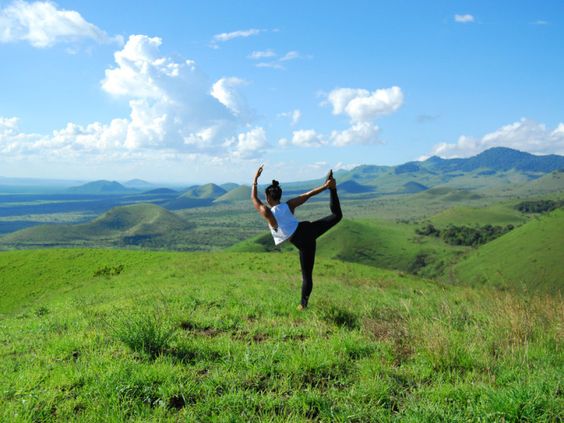“Don’t you think yoga opens you up to dangerous spiritual entities? Like practicing it acts as a portal for unwelcome spirits?” Asked one of my colleagues while in the throes of a passionate discussion surrounding wellness. According to him, yoga poses a threat to his Christian beliefs; this myth acts as a hindrance for him to dare hop on a yoga mat.
Yoga being a religious practice is one of the most prevalent myths surrounding this grounding practice. Misconceptions like these, not only hold back seasoned yogis from developing a deeper practice but also stop individuals from ever picking up a mat.
Let’s get to the truth behind this practice by demystifying five myths about yoga you should stop believing right now.
Myth 1: Yoga is a religious practice.
Yoga originates from ancient India, the culture of Hinduism, thus some of the teachings of Hindu tradition and yoga overlap (e.g., some philosophical views of life). This, however, does
not mean that yoga is a religion, or one would need to adopt Hinduism to practice yoga
(Kaczvinsky, 1994, 1995; Weninger, 1986, 1987).
There’s no separating yoga from some spiritual and religious aspects, that said, yoga is all about the sacred union of individual consciousness with a higher consciousness; it encourages one to live to their fullest potential holistically.
Therefore, one need not feel pressure to practice any Hindu traditions or perform any other religious rituals. One can observe it for whatever individual reasons they may have. Note that the end goal is to achieve overall wellness; and mental, physical, and spiritual support.
Myth 2: Yoga is only for the flexible.
Seasoned Instagram yogis in complex contortionist positions will have you thinking that this practice is only limited to the flexible. This is not the case, however, as yoga is a mindful practice aimed at helping individuals to focus on the “now”.
Yoga is not a competition to see who can touch their toes with the most ease; but an exercise on stability. To have a calm stable mind is one of the main goals of yoga, flexibility is but a welcome side product.
Myth 3: Pregnant women should skip yoga.
It is understandable to assume that high-impact yoga can be detrimental to expecting women. That said, prenatal yoga is recommended to help the pregnant woman’s body prepare for birth.
Low-impact asanas(physical poses) such as bound angle poses help stretch and strengthen the pelvic muscles which eases the delivery muscles.
Myth 4: You need a studio to practice yoga.
Yoga is available in different settings: studios, gyms, and even the comfort of your home. One should factor in convenience, affordability, and community when deciding what works best.
One should also not feel the pressure to join a studio if that does not align with what they are looking for, there are a myriad of ways to practice yoga at home. Using guided meditations from YouTube and podcasts of your choice will do just the job. A popular YouTuber who makes yoga accessible in the comfort of your home is Yoga With Adrienne.
That being said, yoga studios are a great way to meet people in the same community, and beginners can get invaluable guidance from professionals.
It is paramount to find a studio and venue that best works for you; visit a few studios before settling on one that meets your needs.
Myth 5: Yoga is only for women.
This misconception is perpetuated by the disparity in numbers with the number of men seen practicing yoga. Ostensibly, more women practice yoga, but this doesn’t mean that it’s only restricted to women.
Yoga is for all who are open-minded and who are willing to learn. It is encouraged and recommended to all members of society, regardless of their age, religion, or gender orientation.
Now that we have debunked some of the myths associated with yoga, we hope you will join our community of seasoned yogis and overall wellness enthusiasts; and embark with us on a journey to holistic wellness.
